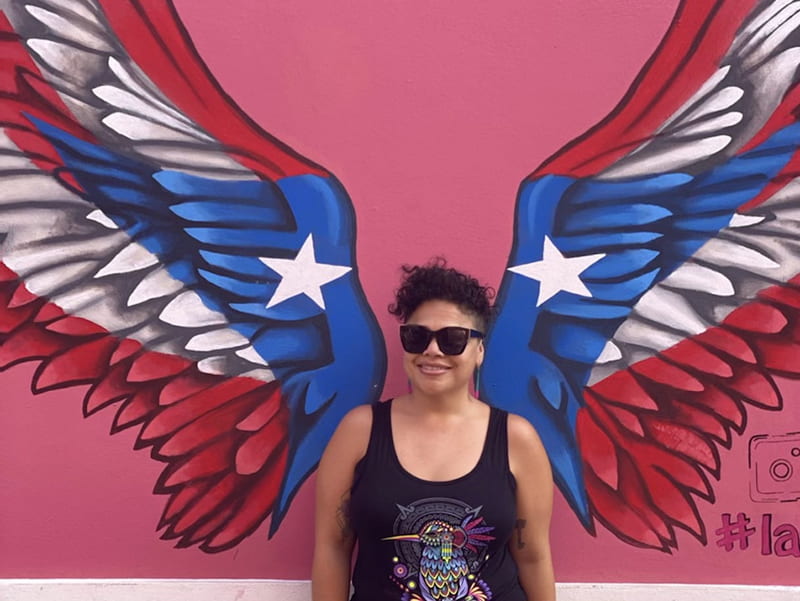“Oregon Changed My Life”
Alison Cerezo
“Oregon changed my life. I’m grateful that I went there for graduate school.”
Alison Cerezo, PhD ’09 Counseling Psychology, is rooted in their community. So, when it came time to choose their discipline, counseling psychology was a natural choice because of its approach to mental health.
“Given that I used to be involved in community organizing, I knew that I needed something that was rooted in social justice. Counseling psychology is invested in understanding how one’s ecological context impacts their access to resources and impacts their health. It’s not focused on the individuals and their problems, but more so on how the individual is able to navigate a world that isn’t fair.”
Mentorship from Benedict McWhirter helped Alison develop the confidence to become a researcher.
“Oftentimes, we see these tropes about who fits as a researcher. Even though I had a master’s degree in research methods and came to the UO with a lot of experience in statistical analysis, I still didn’t see myself as a researcher. Benedict was always a champion of mine. He helped me see what I was capable of and encouraged me to pursue research. He put me on the path to explore what academia could be for me.”
As an associate professor at University of California, Santa Barbara, Alison also runs the Social and Health Equity Lab at UCSB and Healing Space, the latter is a training clinic created in response to the racial trauma that came to the forefront in the summer of 2020.
“Our department at the University of California, Santa Barbara developed a clinic to help our Black students train together to serve the Black community in the Central Coast. I’m the inaugural director of our small clinic but we recently got a grant to bring in tenure track faculty members. My hope is that it becomes a springboard for younger Black faculty to thrive in their careers.”
Alison’s research delves into intersectional stress and discrimination and resulting health disparities in Latinx and Black LGBTQIA+ communities. They recently became the lead strategy evaluator for a statewide initiative in California that awards grants to community nonprofits to build their own research and evaluation capacity to provide direct services for the LGBTQIA+ community. Minoritized LGBTQIA+ individuals are less likely to seek out medical care and the statewide program seeks to increase access to preventative care services. Alison hopes that the program can become a model for similar initiatives across the country and prove that improving access to preventative care is a sound economic approach as well.
Alison thinks that the initiative is also providing a tangible effect among the nonprofits that serve these communities.
“More than anything, I’m excited to put money in the accounts of organizations who are already doing great work on the ground. The people who face the most disparately negative issues are also the people with less resources. Supporting them to gain research and evaluation skills will help them become competitive for funds that keep their doors open to continue to do that good work. I want to help them reach a larger audience and build their research capacity.”
Alison wants others to see how counseling psychology emphasizes a community-based approach in research and practice.
“I think counseling psychology has the capacity to think about health equity in a way that is very community centered. We learned the skills to help build community resilience. Counseling psychology gave me the theory, but it also gave me the clinical and research skills to do that.”
Alison recently gave a keynote address at the American Psychological Association’s Convention in Minneapolis. They saw it as an opportunity to share their unique perspective and encourage first-generation, LGBTQIA+ students of color like theirself to pursue research.
“It’s meaningful for somebody from inner city Los Angeles to be presenting at the conference. My take home message is that there’s nothing remarkable about me. I’m just like so many other kids from my neighborhood. If given the opportunity, they could also be doing wonderful things, but so few people are given opportunities. We need to understand that skills and talent are abundant in inner cities, they just haven’t had exposure to some of the educational resources that I have.”

0 Comments